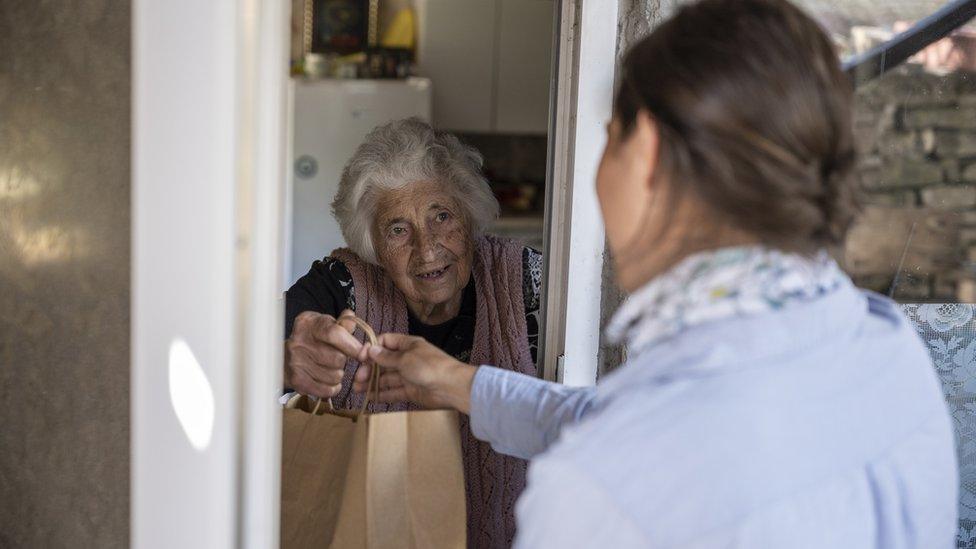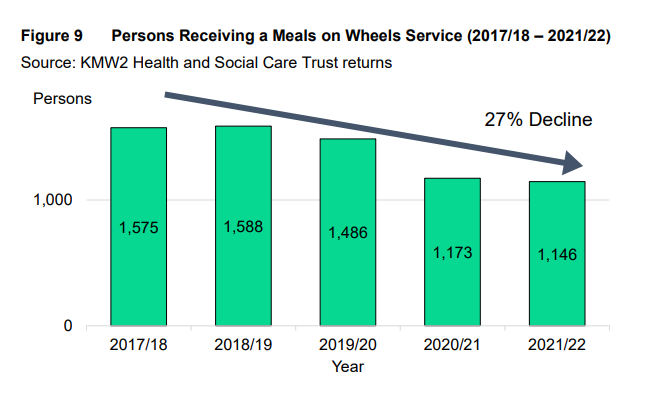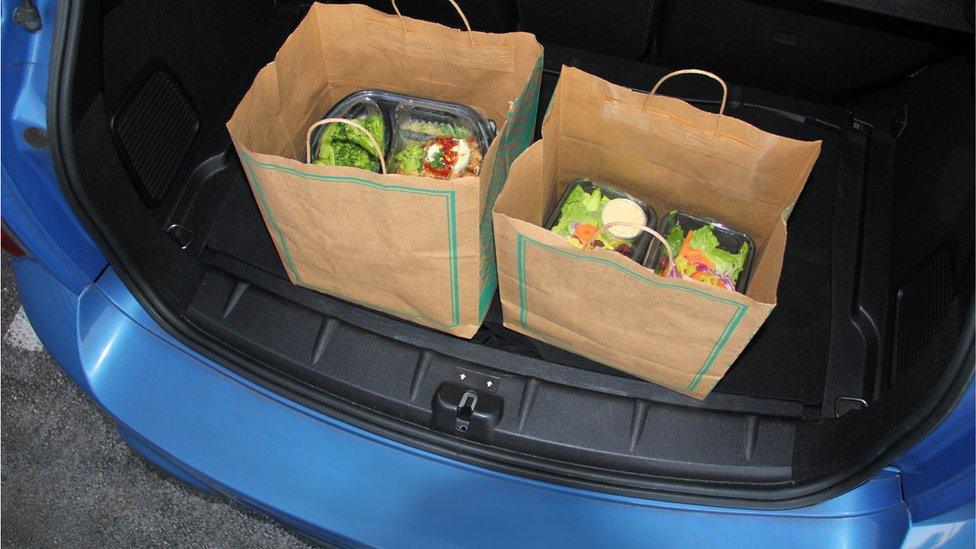Meals on wheels: Hunger warning as Belfast provider pulls out
- Published

The people who had been receiving meal deliveries
A carers' group has raised concerns after a meals on wheels service used by 160 elderly and vulnerable people in Belfast lost its contractor.
The deliveries were commissioned by the Belfast Health Trust for people who are assessed to be unable to prepare meals because of disability or frailty.
Carers NI warned that vulnerable people were at risk of going hungry.
The trust said the contractor pulled out due to decreased demand and it is "exploring alternative arrangements".
However, Craig Harrison, public affairs manager for Carers NI, said the families affected by the withdrawal of the service were "at their wits' end" with worry,
"We aren't talking about an optional luxury - people need to eat, it isn't something that they can just forego," he said.
Speaking on the BBC's Good Morning Ulster programme, Mr Harrison said Carers NI had been in contact with one family whose loved one had not received any food deliveries since last week.
He added that the family had no confirmation from the trust about any alternative provision and had "no idea about what comes next".
"You're talking about 160 people here who, because of old age; because of a physical or a sensory disability, have gone through an assessment and that assessment has come to the conclusion that they are too sick or disabled to prepare meals for themselves," Mr Harrison said.
"It's not that they just can't be bothered."
Carers NI said 169 people were registered as using the service in 2021/22 and more than 70% of them were aged 75 or over.
However, recent community care statistics from the Department of Health showed a 27% decline in use of meals on wheels services across Northern Ireland between 2017 and 2022.

Community care statistics show an overall decline in use of Meals on Wheels services across NI
In a statement, the trust said: "Whilst Belfast Trust does not have a statutory obligation to subsidise the cost of service user's food, it has previously commissioned a provider to deliver prepared meals to service users."
It said the company which had been providing the meal deliveries informed it on 29 June that it would "no longer be able to continue this service due to decreased demand".
"This contract had been previously advertised through a public procurement process and to date the current provider was the only company to provide a tender submission," the trust added.
The firm gave the trust three months' notice of its decision to end the service.
Since late June, the trust said it has been" supporting service users and their carers with exploring alternative arrangements in line with relevant criteria for access to services".
"We will continue this process with all existing service users until the needs of all are met," it added.

The trust says it has been supporting service users "in line with the relevant criteria for access to services" - stock photo
However, Carers NI said there had been a lack of answers provided to the people affected.
"It's ok to keep using this phrase of 'alternative arrangements' but no-one knows what that means," Mr Harrison said.
"And certainly, from the point of view of the family that I mentioned earlier, as far as they can tell there aren't any alternative arrangements.
"As of last week, they stopped receiving deliveries and they've been left to deal with it themselves."
The trust said the requirement for the meals on wheels service has declined over the past five years, "with a sharp decline post-Covid due to greater availability of food delivery services".
It also said there has also been "significant changes in the development of services designed to promote independence" by helping people to regain cooking skills, make their own shopping arrangement and "maximise independent mobility".
'Pressure piled on families'
However, Mr Harrison said the people who still needed meal deliveries would now face a "massive cost burden" in the middle of a cost-of-living crisis.
"It seems very likely to me that more and more pressure is now going to be piled on the shoulders of their family members, their unpaid carers, to fill that gap and that's incredibly difficult."